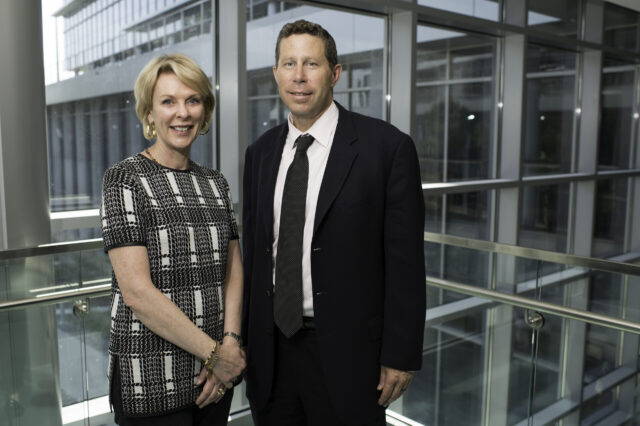Researchers receive $1.6 million to build a statewide network for improving health care for Floridians

The Florida Department of Health has awarded $1.6 million to the University of Florida to help establish a statewide network that will quickly bring the benefits of research in labs and other clinical settings to more than 9 million patients in all of Florida’s 67 counties.
The network will initially create tobacco cessation programs in doctors’ offices around the state in a coordinated effort to prevent cancers and other cardiovascular diseases related to tobacco use.
The tobacco cessation programs are part of a statewide network called “OneFlorida” that links three Florida universities to translate research findings into practice. Led by Betsy Shenkman, Ph.D., and David R. Nelson, M.D., of UF’s Clinical and Translational Science Institute, the network builds on statewide research infrastructure developed by UF and Florida State University and is expanding to include the University of Miami, along with the universities’ affiliated health practices. In total, the network will encompass 22 hospitals, 416 clinic settings and 3,250 physician providers, which covers 39 percent of Florida’s patient population.
“We are excited about our partnerships throughout Florida,” said Shenkman, chair of the Department of Health Outcomes and Policy at the University of Florida and the project’s principal investigator. “This is the first step in a larger effort to work with doctors and patients to adapt research findings into local community settings to improve the health of Floridians.”
The tobacco cessation project, funded by the Department of Health’s James and Esther King Biomedical Research Program, will help combat the 28,600 deaths annually from cigarette use in Florida, as well as reduce the estimated $19.6 billion in health care costs and productivity loss due to tobacco-related diseases in the state each year. In particular, the grant will fund the implementation of a tobacco cessation program using health information technology to alert doctors to which patients are smokers, prompt the physicians to address the issue during the patient’s visit and then refer patients to appropriate community-based resources for support and guidance to help them quit. By linking patients with community resources, this process will help develop a smooth transition between what happens during a doctor’s visit and the type of sustained help patients need once they leave the doctor’s office.
This project is just one example of how the network allows research to be conducted in real-world settings to ensure that proven research can be adapted to actual clinical settings. The network also will get treatments and programs to patients more quickly by engaging with practitioners on the ground.
“Over the last year, we have seen a tremendous groundswell of support for advancing a statewide vision that would enable researchers, clinicians, communities and patients to unite in tackling some of Florida’s biggest health challenges,” said David R. Nelson, M.D., an assistant vice president for research at UF and director of the UF CTSI. “This grant will help us build on prior state and federal investments to make that vision a reality.”
The statewide network is dedicated to helping researchers and patients from underserved and vulnerable populations become involved in community-based research. To this end, the grant will fund three researchers per year from either Florida A&M University or Edward Waters College, both of which are historically black colleges and universities, to conduct research in clinics affiliated with the network and recruit patient participants from minority populations. This effort will ensure treatments and programs serve the entire population of the state and are tailored to individual community needs.
“The funding for this project comes on the heels of recent appropriations of approximately $16 million by the Florida Legislature to fund cancer research at the UF Health Cancer Center,” said David S. Guzick, M.D., Ph.D., UF senior vice president of health affairs and president of UF Health. “Together these funds will allow UF to tackle cancer, which is the leading cause of death in Florida, on multiple fronts across the state.”
For more information on the statewide network, visit http://www.ctsi.ufl.edu/research-initiatives/projects/oneflorida/.